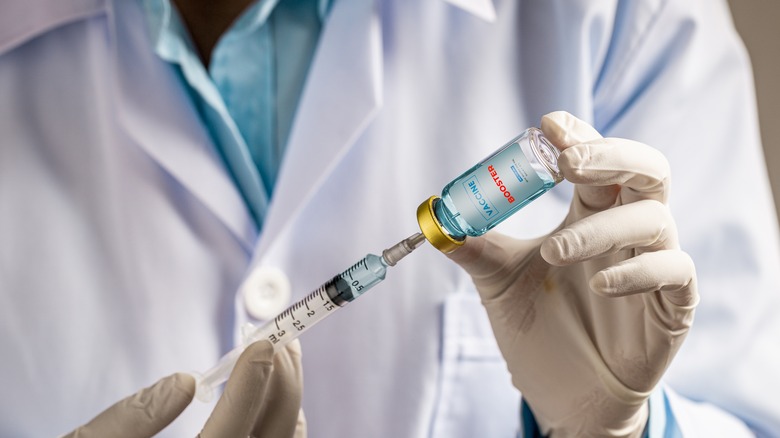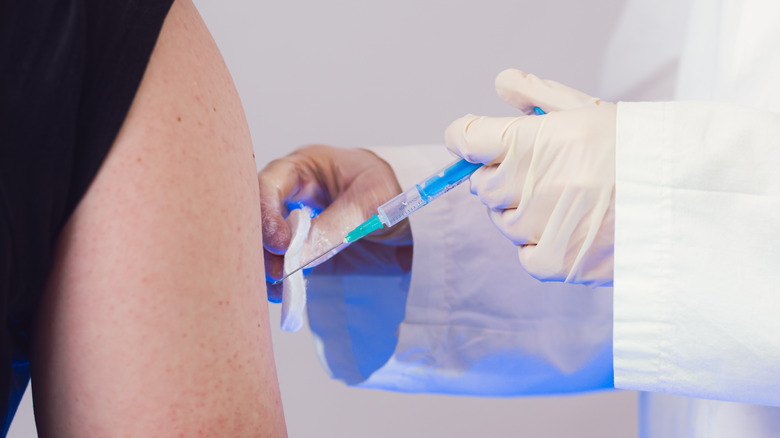Studies Suggest The Bivalent COVID Booster Is No More Effective Than Original Vaccine
There's no doubt that the SARS-CoV-2 virus is unpredictable. As more evolved strains come to pass, researchers continue their search for an effective way to defeat the virus. According to the Centers for Disease Control and Prevention, a vaccine must be developed in a lab, tested in clinical trials, and approved by the U.S. Food and Drug Administration (FDA). Many have gotten vaccines produced by Pfizer or Moderna, and these vaccines are considered "mRNA vaccines." They contain mRNA that helps our bodies create a protein called "spike protein," which is located on the surface of the SARS-CoV-2 virus. The mRNA is broken down by our cells and released from the body as waste, and the spike protein triggers an immune system response that produces antibodies. Through these vaccines, our bodies are able to build protection against future infections from the virus.
There were high hopes for the vaccines, and for the most part, they appeared to be doing their job (per Nature). However, after the evolution of the omicron variant, many questioned whether the original vaccines would be as effective. The new BA.4 and BA.5 variants were found to be extremely resistant to the vaccine, according to MedicalNewsToday. As reported by the FDA, a bivalent vaccine was developed to provide better protection against the omicron variant, and can be referred to as an updated COVID-19 vaccine booster dose. The real question is, is the bivalent vaccine actually effective? The results of recent studies may offer some insight.
How effective is the bivalent booster compared to the original vaccine?
According to a recent study published in The New England Journal of Medicine, the FDA provided emergency use authorizations to bivalent vaccines in response to the sudden surge of coronavirus cases caused by the omicron BA.4 and BA.5 variants. The researchers sought to understand the efficacy of the bivalent COVID-19 vaccine due to the limited research available. In their study, the updated vaccine appeared to provide the same level of protection against the virus as the original vaccine. However, follow-up studies are needed to confirm these findings.
The first study's findings were supported by a second study published by The New England Journal of Medicine. Individuals who received the bivalent booster were not found to produce greater levels of antibodies or a better immune response than those who received the original vaccine.
Researchers hypothesize that this may be the case due to the original COVID-19 virus becoming embedded in the human immune system. "It may be that people's immune systems are so primed to respond to the ancestral strain spike protein that a reformulated booster is unable to fully stimulate the immune system because it has been 'imprinted' by the original version of the virus," said Dr. Amesh Adalja (per U.S. News & World Report). It's possible that our bodies recognize the updated vaccine as the same thing they've received in the past, which could potentially explain its unimpressive amount of extra protection.


